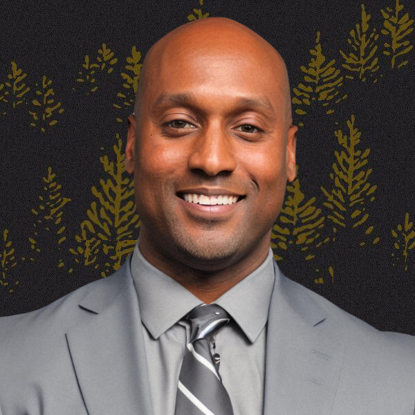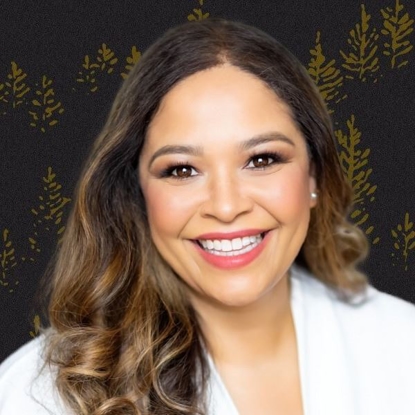
Tualatin Personal Injury Attorneys
Fighting for Your Recovery
When you’ve been injured in an accident or otherwise harmed by the negligent, reckless, or wrongful conduct of another, you have the right to take legal action. You could be entitled to significant compensation, and Pacific Cascade Legal can help.
From our office in Tualatin, OR, we help people throughout Washington County who have suffered devastating injuries and losses as a result of negligence. Our award-winning legal team offers highly personalized representation and tireless client advocacy throughout the entire process. We are even here to provide the ongoing support you need to thrive after your case is resolved.
Schedule a complimentary consultation with our Tualatin personal injury lawyers today; call or contact us online to get started.
Understanding Oregon’s Personal Injury Laws
Every state has its own unique personal injury statute. These statutes outline everything from the process of bringing a personal injury claim to the amount of time you have to sue the liable party for damages. If you are injured in an accident in Oregon, it’s important that you understand our state’s personal injury laws so that you can more easily navigate the claims process.
At Pacific Cascade Legal, we can help you understand your legal rights and options. If you have been harmed due to someone else’s negligent or wrongful conduct, reach out to our team right away to speak to an attorney at no cost.
Proving Negligence in Your Case
Most personal injury cases are brought on the grounds of negligence. To have a negligence-based claim, you must prove that someone else—whether it was another person, a company, a manufacturer, or even a government entity—was somehow at fault for the incident that led to your injury.
To prove your personal injury case, you will likely need to prove each of the following elements:
- Injury: First, you must prove that you were injured. Physical injuries are easiest to prove, but you could also have a case if you can prove that you suffered a psychological or mental injury. In many cases, plaintiffs have multiple types of injuries. For example, you may suffer broken bones, head trauma, and post-traumatic stress disorder (PTSD) following a serious car accident.
- Damages: You must also establish that your injury (or injuries) led to measurable damages for which you can be compensated. “Damages” is a legal term that refers to the collective physical, emotional, and financial losses you have suffered as a result of your injury/injuries. Examples include medical bills, lost wages, and pain and suffering.
- Duty of Care: To bring a case against another person or party (known as the “defendant”), you must prove that they owed you a duty of care. This simply means that they had a legal obligation to take certain actions and/or refrain from certain actions in an effort to prevent foreseeable injury or harm.
- Breach: To prove that the defendant breached the duty of care, you must typically prove that they acted negligently or wrongfully (i.e., illegally). For example, all motorists owe an implied duty of care to others on the road. They must follow traffic laws and drive safely to avoid causing accidents. If a motorist drives drunk, they have breached this duty of care.
- Causation: Lastly, you must prove that the defendant’s breach of the duty of care (i.e., their negligent or wrongful conduct) was the proximate cause of your injury/injuries and resulting damages. In other words, you must show how the defendant’s actions or inactions directly or indirectly led to the incident that caused your injury/injuries.
If you are found to be partly at fault, you can still seek compensation for your damages. However, the amount you can recover will be affected in that you will not be able to recover the full amount you are seeking in damages. For example, if you are found to be 30% at fault for an accident that caused your injuries, you can only recover up to 70% of the total amount in damages you would otherwise receive. Additionally, if you are more at fault than the other party, you cannot file a claim or recover any compensation under Oregon’s modified comparative fault rule.
How Long Do You Have to File a Personal Injury Lawsuit?
In most cases, you have just two years from the date of injury to file a personal injury lawsuit in Oregon. This is known as the statute of limitations, and if it expires before you sue for damages, the court will almost certainly dismiss your case.
There are very few exceptions to the statute of limitations, but they do exist. It is always in your best interests to act quickly, as the sooner you reach out to our Tualatin personal injury lawyers, the sooner we can begin building your case and advocating for your recovery.
What Types of Damages Can You Recover?
Many factors affect the exact types of damages—as well as the potential overall value of your case—you can recover when filing a personal injury claim. These factors include the nature and severity of your injuries, the cost and extent of your medical care, the value of your pain and suffering, and more.
However, many people who file personal injury claims seek compensation for the following types of damages:
- Medical expenses, including future care costs
- Past, current, and future lost income/wages
- Past, current, and future pain and suffering
- Loss of earning ability due to partial or total impairment
- Emotional distress and trauma
- Related mental health conditions, such as PTSD, anxiety, and depression
- Physical and mental rehabilitation and therapy
- Counseling costs
- In-home assistance/care costs
Depending on the details of your case, you could also be entitled to punitive damages, which are meant to punish the defendant rather than compensate you for specific losses. Generally speaking, punitive damages are only available in cases involving gross negligence, egregious misconduct, or intentional infliction of injury/harm.
Contact Pacific Cascade Legal for the Legal Help You Need
If you or someone you love has been seriously injured due to the negligent or wrongful conduct of another person or party, reach out to Pacific Cascade Legal right away to learn how we can help. Our experienced Tualatin personal injury attorneys are here to guide you through the legal process, answering your questions and advocating for your recovery every step of the way. We genuinely care about the people we serve and want to help you navigate this difficult time in your life.
Call our office at or submit a secure contact form here on our website and a member of our team will be in touch with you shortly.
Personal Injury FAQ
How much is my case worth?
Unfortunately, it is not possible to determine the exact value of your case without first reviewing the specific factors involved. The severity of your injuries, the cost of your medical care, the value of your pain and suffering, and even your degree of fault (if any) in causing the incident that led to your injuries all affect the overall value of your claim. We encourage you to reach out to Pacific Cascade Legal today to schedule a free consultation with a member of our legal team. During this free consultation, we can provide detailed information regarding how much your case may be worth.
What types of personal injury cases do you handle?
At Pacific Cascade Legal, we assist clients with all types of personal injury matters, including cases involving car and other motor vehicle accidents, bicycle accidents, pedestrian accidents, construction accidents, medical malpractice, premises liability, slips and falls, dog bites, and more. Contact our firm today to learn how we can help you with your case.
How much does it cost to hire a personal injury lawyer?
Nearly all personal injury lawyers, including ours at Pacific Cascade Legal, work on a contingency fee basis. This means that you do not pay any upfront or out-of-pocket legal fees. Instead, your attorney only gets paid if you do. Once your attorney has recovered a settlement or verdict on your behalf, they are paid via a percentage of your total recovery.

-
 About Us
About Us -
 Resources
Resources -
 Video FAQ
Video FAQ

Meet Your Advocates
Focused on Client Relationships, Integrity, Results & A Better Tomorrow
-
 Lewis Irwin Landerholm Founding Partner
Lewis Irwin Landerholm Founding Partner -
 Will M. Jones Partner
Will M. Jones Partner -
 Alan Nieczyporuk Attorney
Alan Nieczyporuk Attorney -
 Natalie Thorp Jr. Partner
Natalie Thorp Jr. Partner -
 Kimberly Brown Attorney
Kimberly Brown Attorney -
 Darin Wisehart Attorney
Darin Wisehart Attorney -
 Sarah Bain Attorney
Sarah Bain Attorney -
 Olivia Raymond-Williams Attorney
Olivia Raymond-Williams Attorney -
 Timothy Downin Attorney
Timothy Downin Attorney -
 Christy Carpenter Limited License Legal Technician
Christy Carpenter Limited License Legal Technician -
 Shanni Moore Paralegal
Shanni Moore Paralegal -
 Eryn Sisson Paralegal
Eryn Sisson Paralegal -
 Lauren Antrim Associate Manager of Finance, Human Resources & Administration
Lauren Antrim Associate Manager of Finance, Human Resources & Administration -
 Terrance Hogan Attorney
Terrance Hogan Attorney -
 Andy Kralios Attorney
Andy Kralios Attorney -
 Michael Trotter Attorney
Michael Trotter Attorney -
 Zach Santos Attorney
Zach Santos Attorney -
 Lisa Parsons Lead Paralegal / Workflow & Training Specialist
Lisa Parsons Lead Paralegal / Workflow & Training Specialist -
 Lesley Sepetoski Paralegal
Lesley Sepetoski Paralegal -
 Laura Pride Paralegal
Laura Pride Paralegal -
 Jeannette Cordova Paralegal
Jeannette Cordova Paralegal -
 Kailey Maginnis Paralegal
Kailey Maginnis Paralegal -
 Teena Quichocho Paralegal
Teena Quichocho Paralegal -
 Zulema Cornejo Paralegal
Zulema Cornejo Paralegal -
 Claudine McKague Legal Assistant
Claudine McKague Legal Assistant -
 Rachel Woleben Director of Finance, Human Resources, and Administration
Rachel Woleben Director of Finance, Human Resources, and Administration -
 Kari Landerholm Director, Marketing & Growth
Kari Landerholm Director, Marketing & Growth -
 Steve Altishin Director, Client Partnerships
Steve Altishin Director, Client Partnerships -
 Jeremy Armitage Associate Manager of Finance, Technology, and Administration
Jeremy Armitage Associate Manager of Finance, Technology, and Administration -
 Claudia Preciado Client Billing Manager
Claudia Preciado Client Billing Manager
































